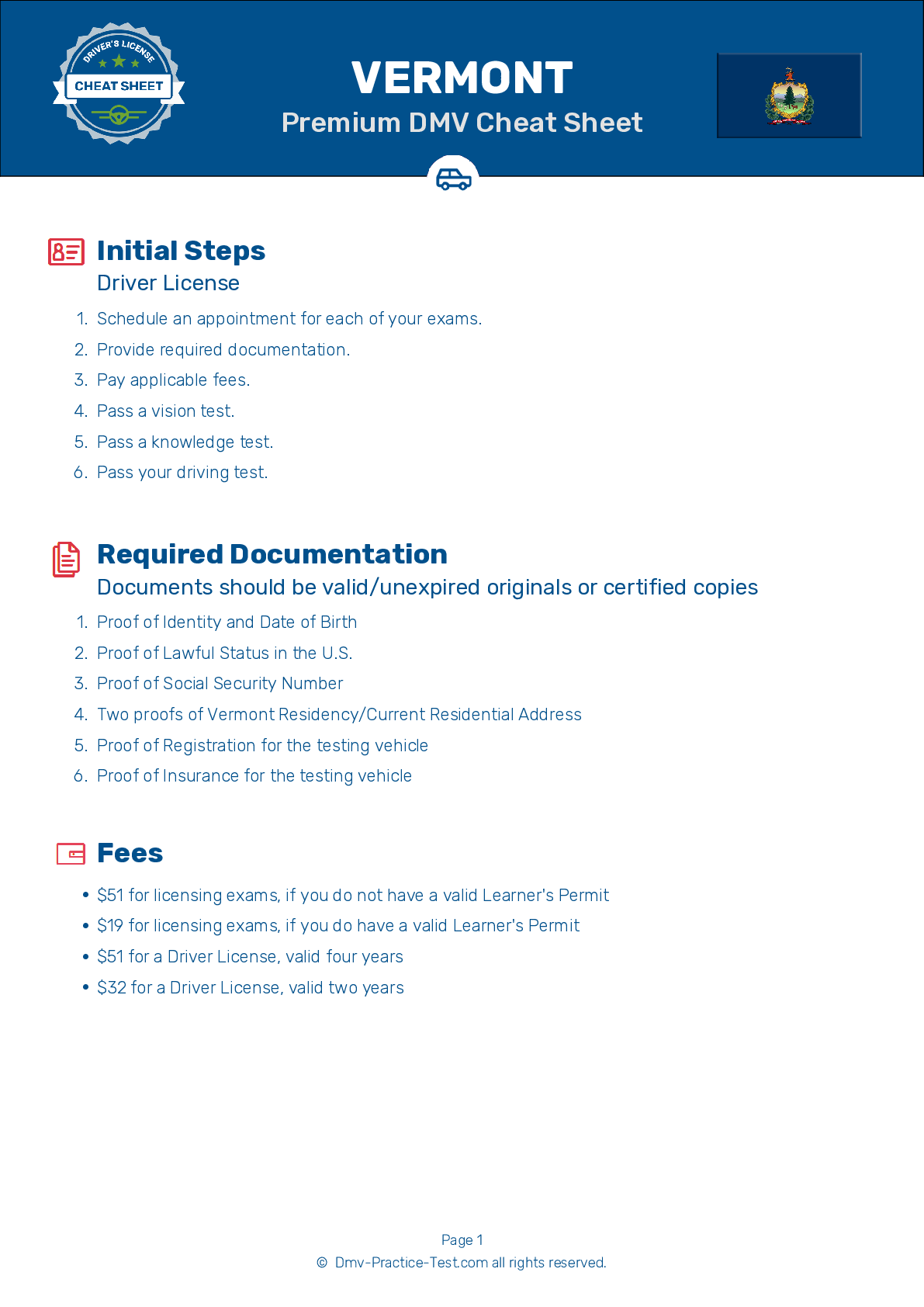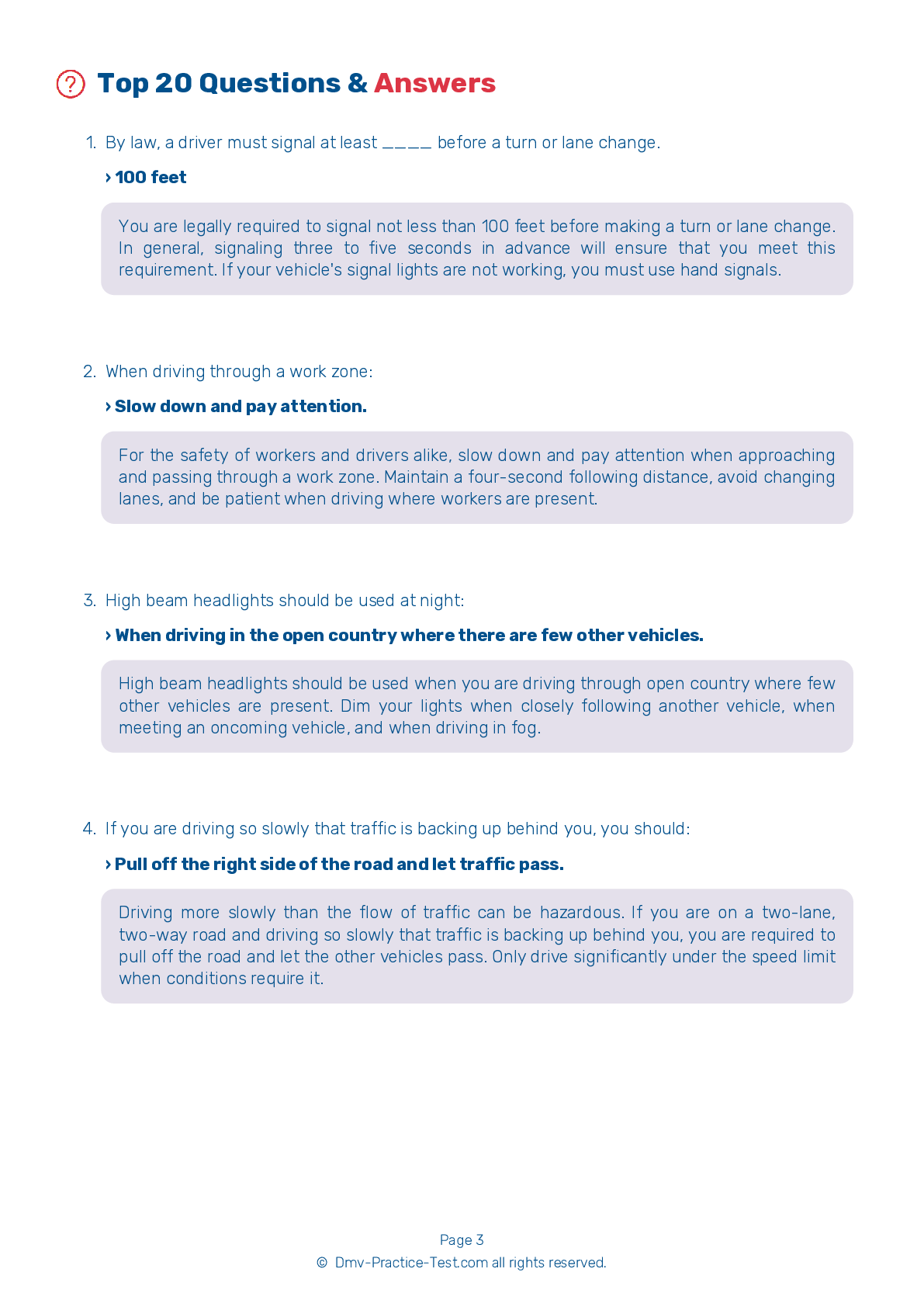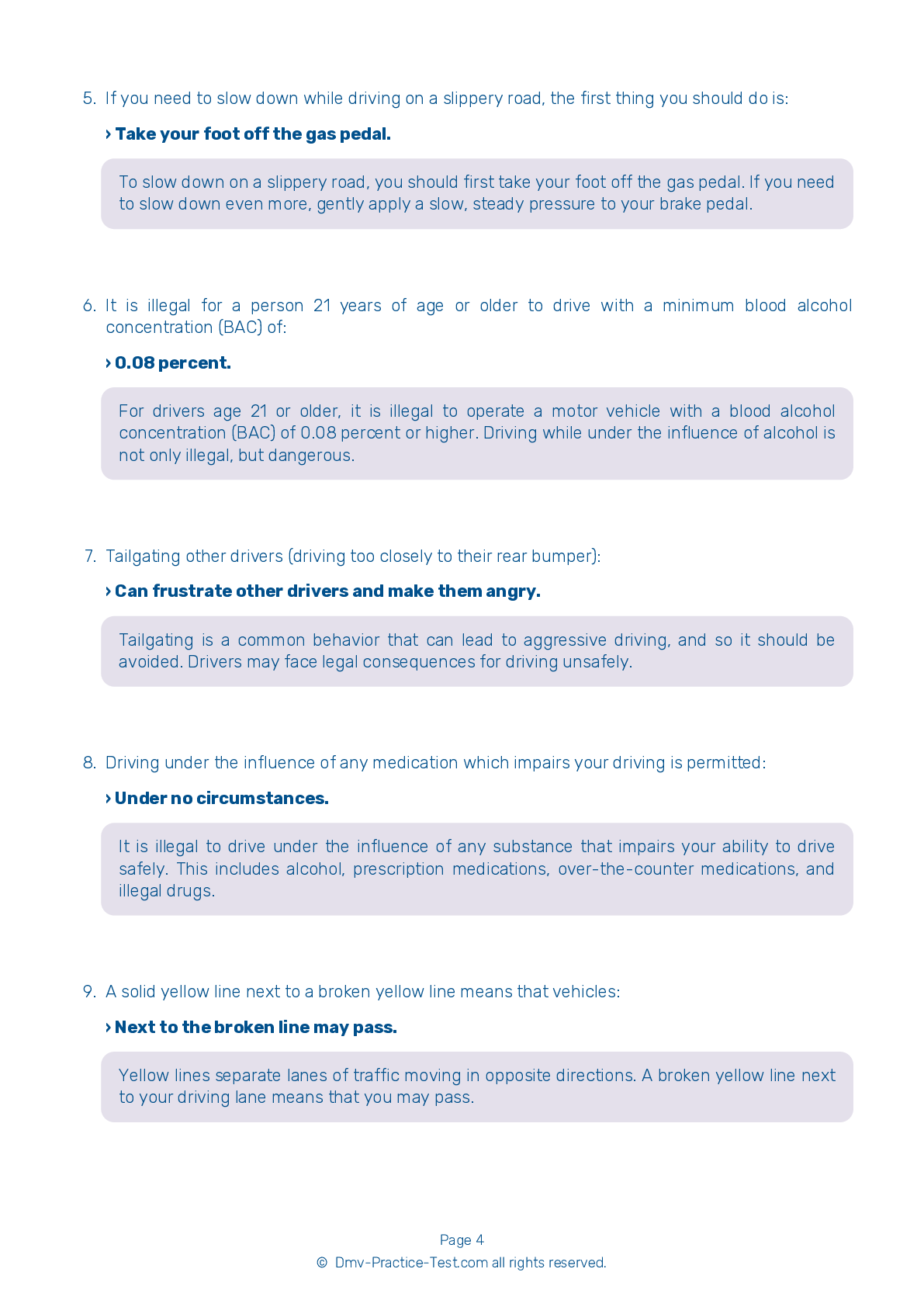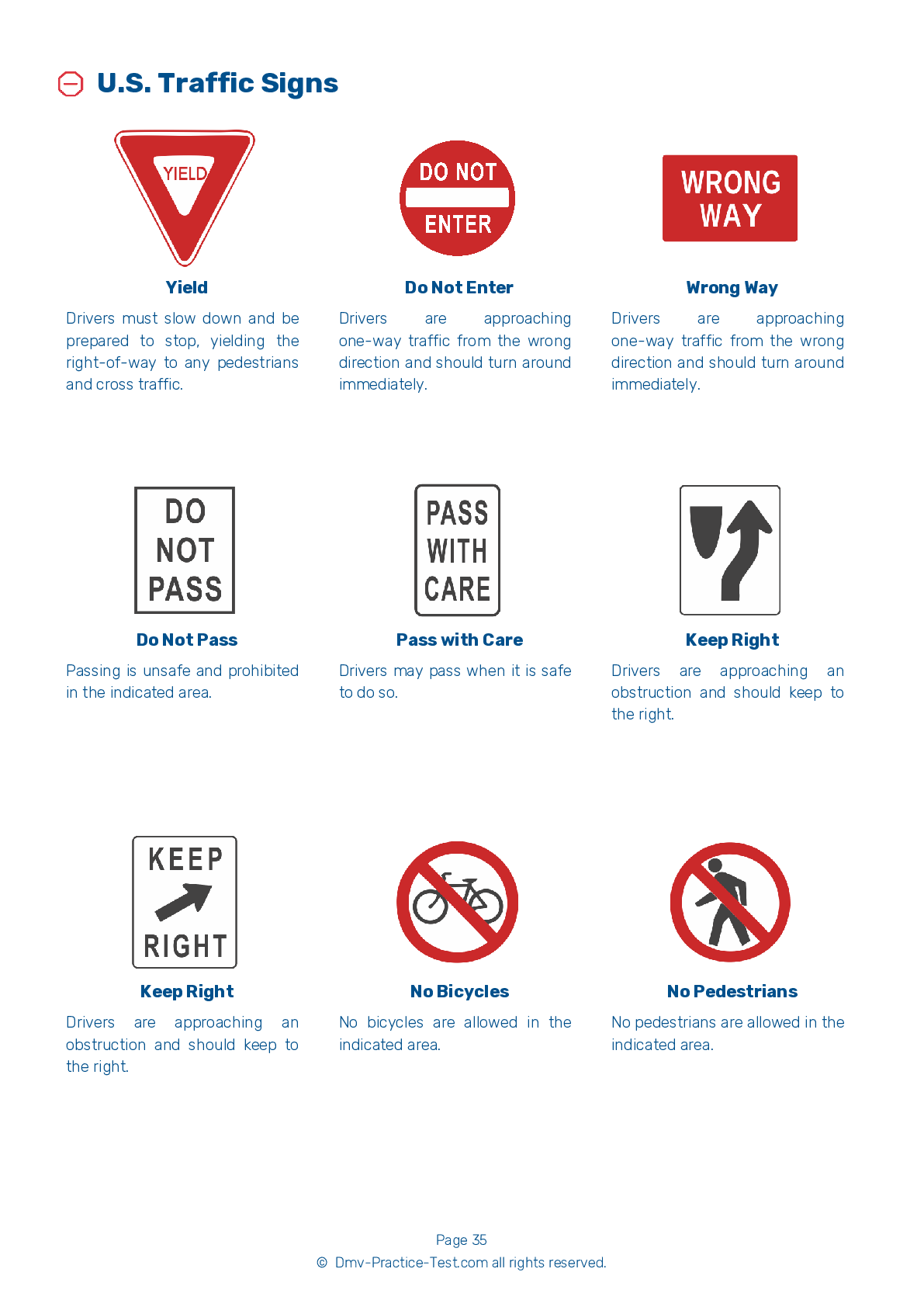FREE Vermont DMV Practice Test #23 Page 2 of 3
The Vermont DMV practise examinations have been updated for January 2025. It includes questions based on the Vermont Driver Handbook's most significant traffic signals and legislation for 2025. Use actual questions that are very similar (often identical!) to the DMV driving permit test and driver's licence exam to study for the DMV driving permit test and driver's licence exam.
On the practise exam, each question gets a tip and explanation to help you remember the concepts. The written component of the official Vermont DMV test will include questions about traffic rules, traffic signs, and driving statutes, as well as knowledge from the Driver Handbook.
To obtain a passing grade, you must correctly answer 16 of the 20 questions. Use the practise exam provided by the Vermont Department of Motor Vehicles to help you prepare for your instruction permit or driver's licence.
The DMV exam is available in several languages.
Using any kind of testing assistance will result in an automatic fail, and the DMV may take additional action against your driver's licence, so stay away from it.
7 . This sign is used to prevent:
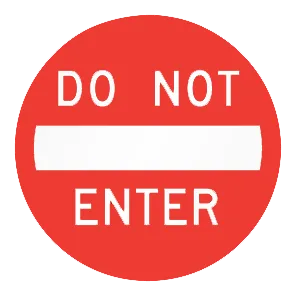
This sign warns that a road has one-way traffic and you must not enter from your current direction.
8 . Regulatory signs are usually ____ and should always be obeyed.
Regulatory signs regulate the movement of traffic. They are usually white with black markings and must always be obeyed by motorists.
9 . It is illegal for a person 21 years of age or older to drive with a minimum blood alcohol concentration (BAC) of:
For drivers age 21 or older, it is illegal to operate a motor vehicle with a blood alcohol concentration (BAC) of 0.08 percent or higher. Driving while under the influence of alcohol is not only illegal, but dangerous.
10 . An inattentive driver is a driver who:
Do not become distracted by looking at passengers, attempting to find something in your vehicle, looking at reading material, sightseeing, or daydreaming while driving. Continue scanning the road, checking your mirrors, and looking at the instrument panel at regular intervals. Developing these safe habits will keep you attentive as a driver.
11 . When approaching a school bus that is stopped and using its red warning lights:
It is illegal to pass a stopped school bus that has its red warning lights on, even in a school yard. However, if you are passing a school bus stopped on the opposite side of a divided highway, you may continue driving.
12 . What should you do if your accelerator sticks while you are driving?
If your accelerator sticks while you are driving, keep your eyes on the road. Quickly shift the vehicle into neutral and apply steady pressure on the brake pedal. Pull off the road when it is safe to do so and turn off the engine.
13 . When driving on an interstate:
Signal, check your mirrors, and check your blind spot before changing lanes or passing on an interstate. Only stop on the shoulder of the interstate in the case of an emergency and change lanes as infrequently as possible. Cruise control should not be used in heavy traffic or under poor weather conditions.
Search the best driving school in your neighbourhood
2025 Vermont | Frequently Asked Questions
1. Not checking mirrors and blind spots before changing lanes or turning.
2. Speeding or driving too slowly for the conditions or posted speed limit.
3. Not coming to a complete stop at stop signs or red lights.
4. Incorrect signalling or not signalling at all.
5. Poor parking, especially parallel parking.
Remember, practice makes perfect, so take time to hone your skills.

